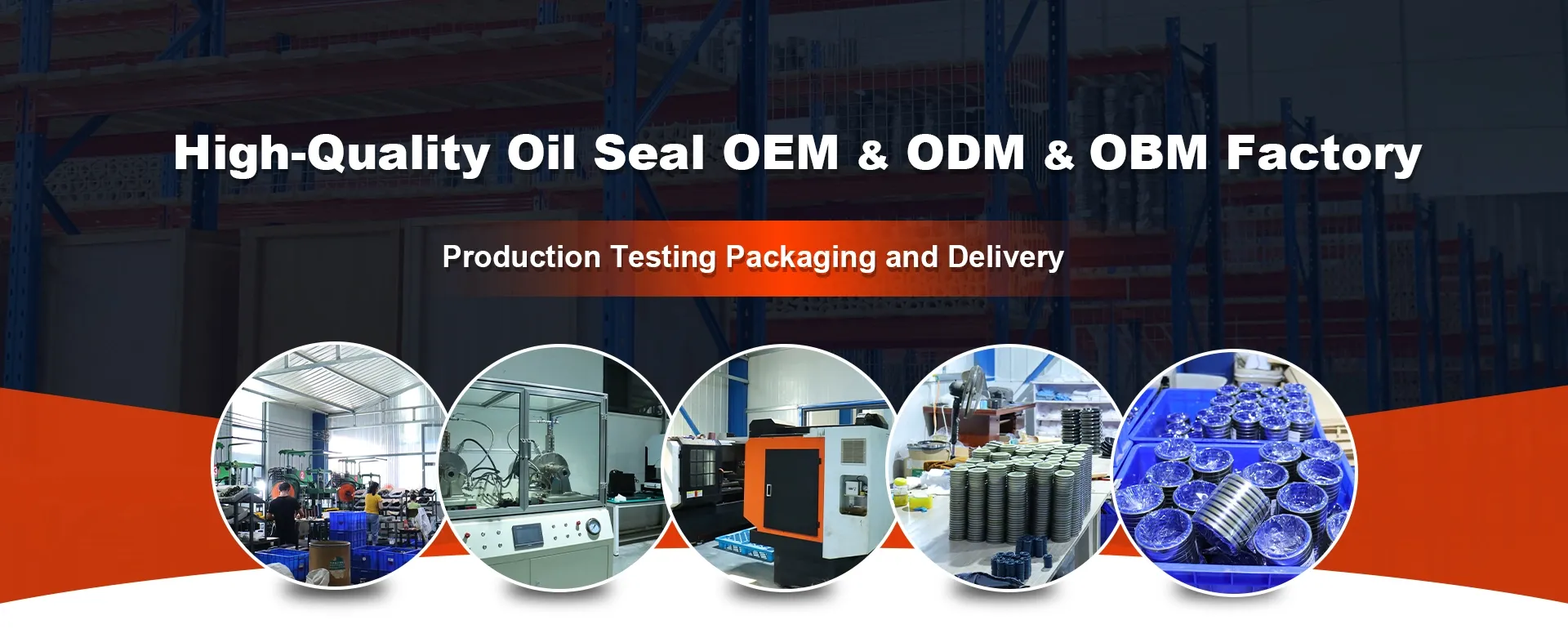ਨਵੰ. . 09, 2024 02:48 Back to list
Understanding Hydraulic Oil Seals and Their Importance in Machinery Performance
Understanding Hydraulic Oil Seals Essential Components for Fluid Power Systems
Hydraulic oil seals are critical components in hydraulic systems, ensuring the efficient operation of machinery and equipment that rely on hydraulic power. These seals play a vital role in preventing the leakage of hydraulic fluids, thus maintaining system integrity and performance. In this article, we will delve into the function, types, materials, and maintenance of hydraulic oil seals.
Function of Hydraulic Oil Seals
At the core of any hydraulic system is the need to contain hydraulic fluid under pressure. Hydraulic oil seals are designed to prevent fluid leakage, which can result in system failures, loss of efficiency, and potential damage to the environment. These seals provide a barrier that keeps hydraulic oil from escaping while also preventing contaminants such as dirt and moisture from entering the hydraulic system.
By ensuring a tight seal, hydraulic oil seals help maintain the pressure within the system, which is crucial for the effective operation of hydraulic cylinders, pumps, and motors. Without these seals, the hydraulic system would not function effectively, leading to increased wear and tear on components and reduced overall performance.
Types of Hydraulic Oil Seals
There are several types of hydraulic oil seals, each designed for specific applications and environments
. The most common types include1. U-Cups These seals resemble the letter U and are designed to be used in dynamic applications where there is relative movement between parts. U-cups are effective in preventing leakage in both directions.
2. O-Rings Simple yet highly effective, O-rings are circular seals that fit into a groove on the mating surface. They are used in static and dynamic applications and are available in various sizes to suit different hydraulic systems.
3. Rod and Piston Seals These seals are specifically designed for use in hydraulic cylinders, with rod seals preventing fluid leakage out of the cylinder and piston seals ensuring fluid does not bypass the piston.
hydraulic oil seal

4. V-Rings and Wipers V-rings provide protection against dirt and debris while maintaining a seal against hydraulic oil. Wipers, on the other hand, are designed to wipe away contaminants from the rod surface as it retracts.
Materials Used in Hydraulic Oil Seals
The materials used in hydraulic oil seals are critical for their performance and longevity. Common materials include
- Nitrile Rubber (Buna-N) A widely used material for hydraulic seals due to its excellent resistance to petroleum-based fluids.
- Fluoroelastomer (Viton) Offers superior resistance to high temperatures and aggressive chemicals, making it ideal for harsh environments.
- Polyurethane Known for its excellent wear resistance, polyurethane is often used in dynamic applications where there is a lot of movement.
- PTFE (Teflon) This material is known for its low friction properties and chemical resistance, suitable for applications involving corrosive fluids.
Maintenance of Hydraulic Oil Seals
Regular maintenance and inspection of hydraulic oil seals are essential for ensuring their effective operation. Signs of wear, such as leaks or reduced performance, indicate that a seal may need to be replaced. Ensuring that seals are installed correctly and inspecting them regularly can help prevent premature wear and extend the life of the hydraulic system.
In conclusion, hydraulic oil seals are indispensable components in hydraulic systems, facilitating efficient operation and preventing costly leaks. Understanding the various types, materials, and maintenance practices can help users choose the right seals for their applications, ultimately leading to improved system reliability and performance. Proper selection and care for these seals will not only enhance operational efficiency but will also prolong the life of hydraulic machinery.
-
TCN Oil Seal Metal Ring Reinforcement for Heavy Machinery
NewsJul.25,2025
-
Rotary Lip Seal Spring-Loaded Design for High-Speed Applications
NewsJul.25,2025
-
Hydraulic Cylinder Seals Polyurethane Material for High-Impact Jobs
NewsJul.25,2025
-
High Pressure Oil Seal Polyurethane Coating Wear Resistance
NewsJul.25,2025
-
Dust Proof Seal Double Lip Design for Construction Equipment
NewsJul.25,2025
-
Hub Seal Polyurethane Wear Resistance in Agricultural Vehicles
NewsJul.25,2025
-
The Trans-formative Journey of Wheel Hub Oil Seals
NewsJun.06,2025
Products categories
















